Leading digital solutions for fleet
Real time, top-rated ELD
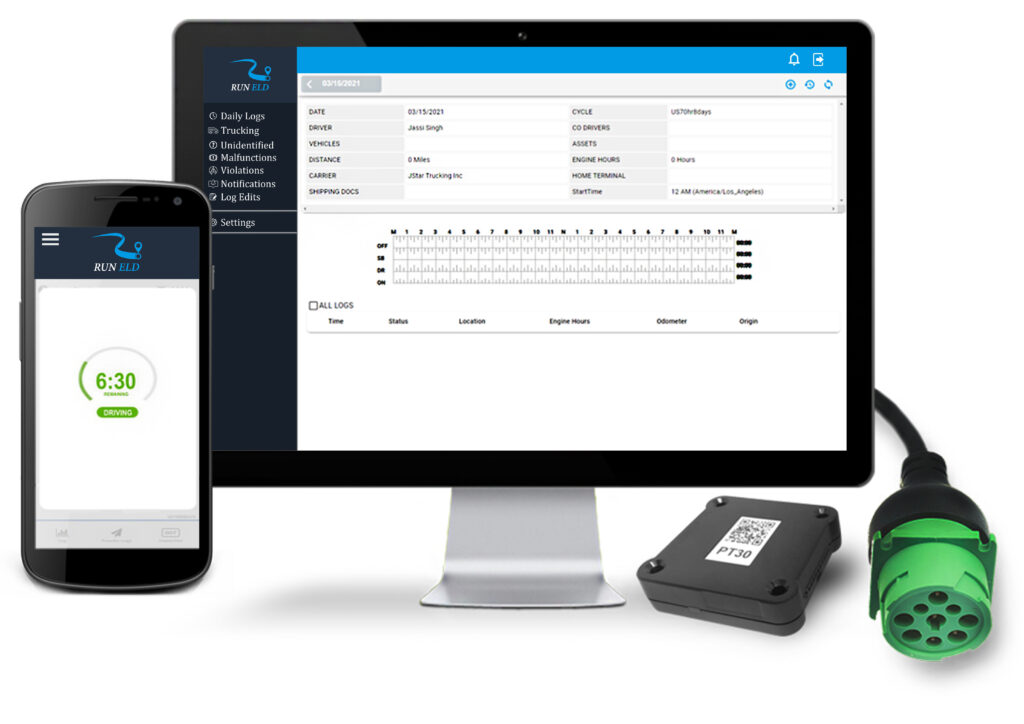
The electronic logging device (ELD) – is intended to help create a safer work environment for drivers, and make it easier and faster to accurately track, manage, and share records of duty status (RODS) data. An ELD synchronizes with a vehicle engine to automatically record driving time, for easier, more accurate hours of service (HOS) recording.
⦁ Easy installation
⦁ Certified by FMCSA
⦁ Built in GPS (note: not a full tracker, It gives the vehicle’s location on the HOS (Hours of Service) log as required by FMCSA regulations).
⦁ Smartphone or tablet connect via Bluetooth, compatible with Android and Apple (iOS) devices
⦁ Large capacity storage for offline operations
⦁ Customizable behavior to match customer requirements
⦁ 3-Axis accelerometer for driving behavior analysis
⦁ J1939, J1708/J1587, and OBD-II compliant interfaces
ELD Components
Things You Need To Stay Compliant
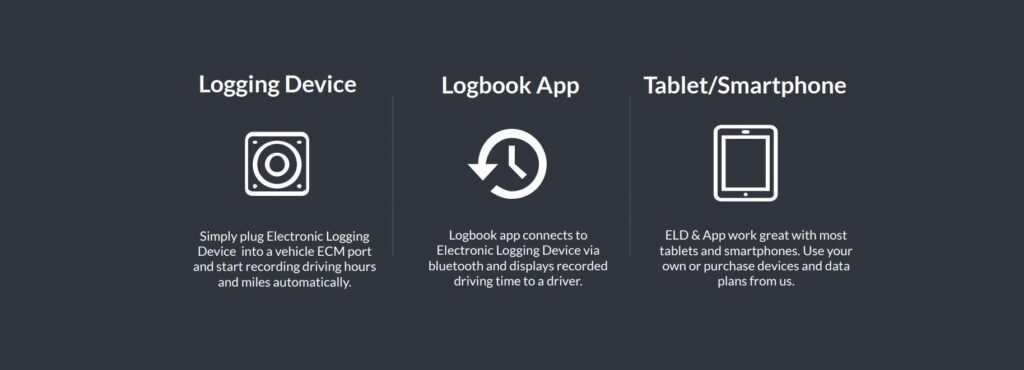
Main Features
ELD Compliance and much more
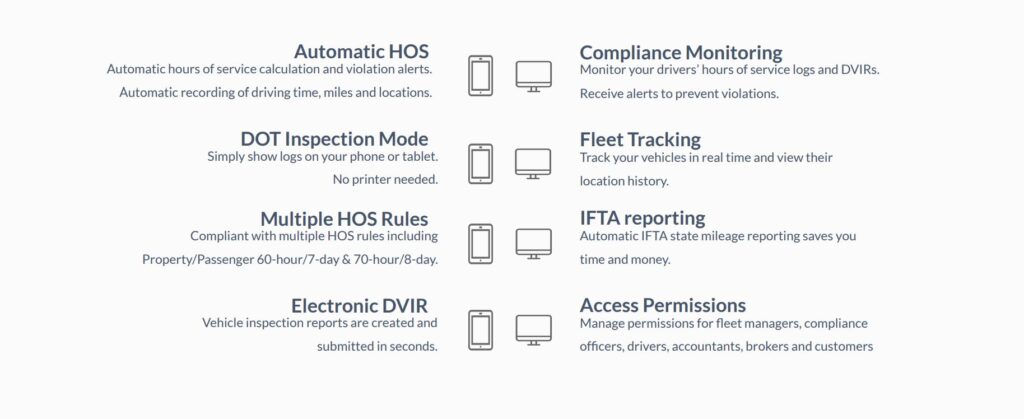
Install & Connect ELD
ELDs are installed within minutes
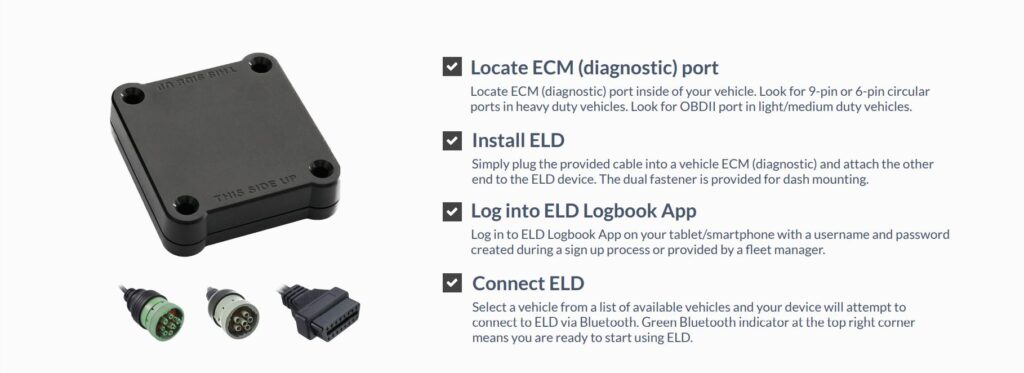
Driver and Fleet manager 24/7 multilingual support to automate ELD compliance
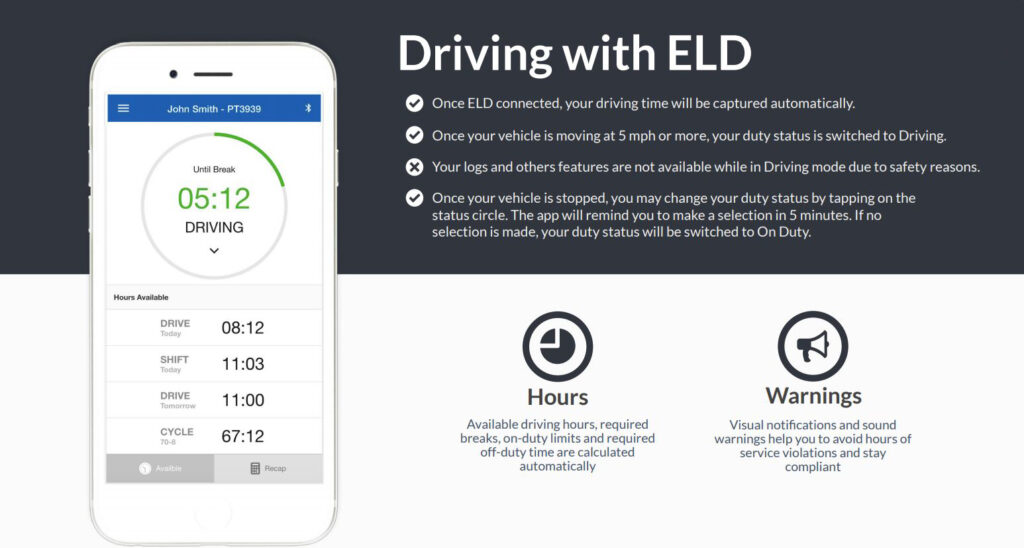
HOS COMPLIANCE MONITORiNG
View/Edit Driver Logs, Vehicle Inspections
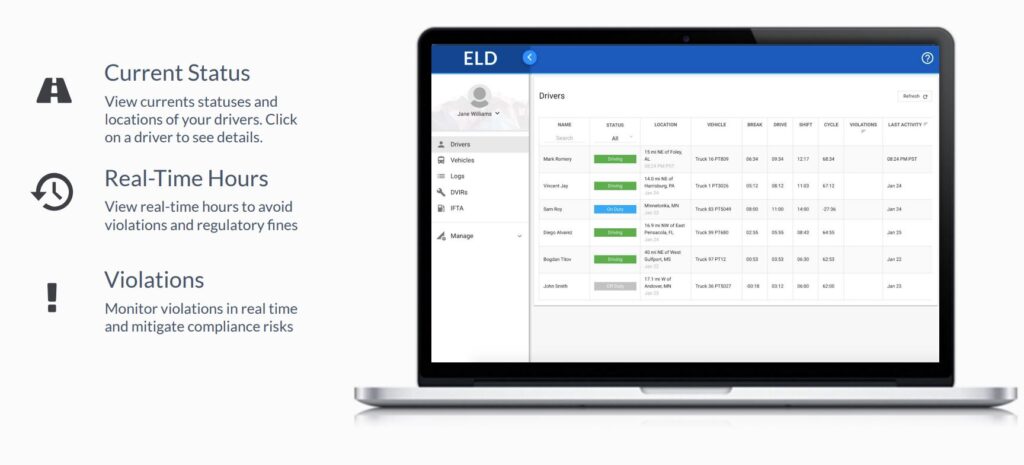
Prevent hours of service violations, increase safety and reduce DOT audit risk.
GPS FLEET TRACKING
Real-Time GPS, Location History
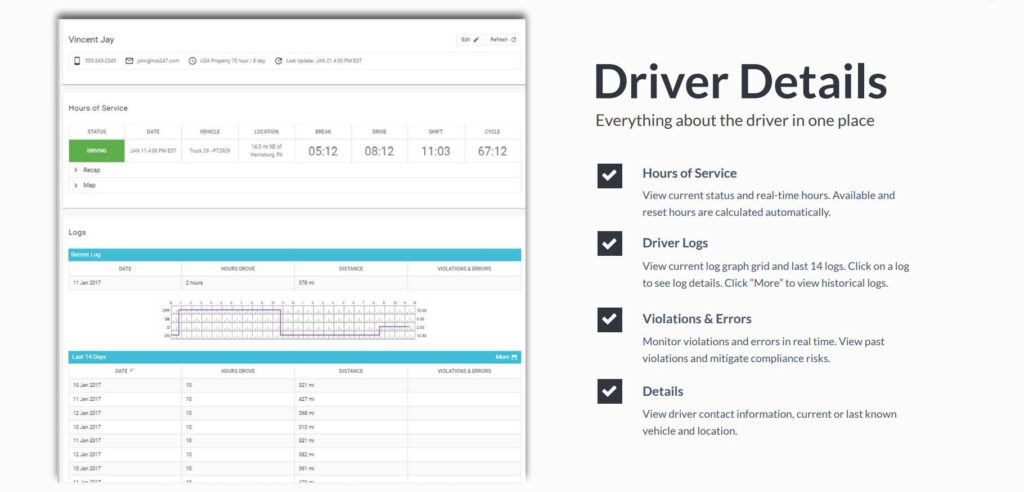
Increase fleet visibility and efficiency with advanced tracking telematics.
Live GPS Fleet Tracking
Fleet tracking is a management system that uses GPS to monitor the activity of tracked assets (vehicles, workers, equipment). It is often referred to as vehicle tracking or AVL – “automatic vehicle locator” system. The fleet is generally a collection of land-based assets such as cars, trucks, field workers and equipment (powered and unpowered e.g. trailers).
Fleet tracking uses telematics technology to collect data (such as vehicle speed, fuel level, battery charge, idle time, etc..) from a fleet of assets. This data is normally collected in near real time (actively) so it is more useful for fleet managers, who use the data to make strategic decisions about operations.

